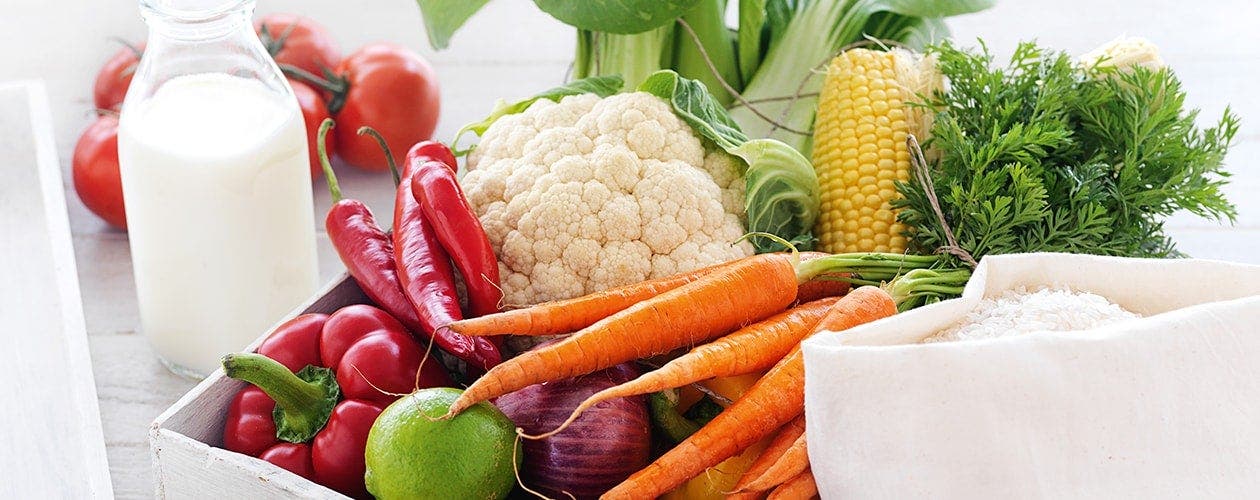The truth about clean eating


Clean eating - What does it mean?
Contrary to its face value, ‘clean eating’ doesn’t just mean giving your apple a good rinse before you eat it to get rid of any dirt or pesticides hanging around on the skin. If you Google the term you’ll find a vast array of definitions, but there is one thing they all have in common: they all talk about eating unprocessed food, also known as ‘whole foods’. The idea of whole foods is pretty straightforward – instead of eating a slice of banana and nut loaf, eat a banana and some nuts. It’s essentially the act of eating foods as close to their natural state as possible, while avoiding added sugars, additives, and foods that have been overly processed.
What are the benefits?
Research has shown that a diet high in processed foods and empty kilojoules leads to obesity and poor health. It can also lead to an increased risk of heart disease, some cancers, high blood pressure and inflammation to name a few, and may even increase the likelihood of abdominal obesity (fat around the belly and internal organs). On the other hand, research also tells us that a diet high in fibre, fruit, vegetables, lean meats, low-fat dairy, beans, pulses and wholegrains reduces these risks. So there are proven benefits to eating this way, and it makes a lot of sense.
What are the downsides?
So, since ‘clean eating’ seems to just mean eating really healthily, how can there be any downside? Well, the biggest issue with the ‘clean eating’ trend is the philosophies that tend to come with it. Many people who adopt this way of eating tend to have very strict rules around what they can and can’t eat – if it’s not ‘clean’ then they can’t eat it. You can see how this can get restrictive and boring, and lead to conditions like orthorexia – a disordered eating pattern characterised by strict rules about how much, when and what foods should be eaten based on beliefs about what a person perceives to be healthy.
According to the Dietitians Associaion of Australia: “Although adopting a healthy lifestyle is encouraged, this type of restrictive eating behaviour can be a concern if it prevents a person from enjoying food, leads to feelings of anxiety before or after eating, restricts social interactions or cuts out entire food groups.”
Another caution around the philosophies lies in assuming that kilojoules don’t matter as long as you’re ‘eating clean’ – but they do. Fundamentally, you need to be in an energy deficit to lose weight, and your body doesn’t care if those kilojoules come from ‘clean’ or ‘dirty’ foods. What ‘eating clean’ will give you, though, is better nutrition and better appetite control, but you still need to pay attention to how many kilojoules you’re eating. That’s where learning to read your hunger signals, come into their own.
How can I make it work for me?
The fundamental ‘eat whole, unprocessed foods’ is really the part of the ‘clean eating’ trend that you should focus on. You can’t go too wrong with that philosophy. Here are our top practical tips for getting the benefits of clean eating, without cramping your lifestyle.
1. Focus on eating whole, unprocessed foods, These foods should make up the majority of your eating plan.
2. Be flexible – it’s the whole, overall eating plan that counts, not individual foods. Leave room for a treat once in a while and enjoy it. You don’t have to eat ‘clean’ all the time, especially if it’s impractical for you. Don’t be afraid to choose your level of ‘cleaness’.
3. Acknowledge that you’ll have to prepare most meals from scratch, because eating mostly whole foods means you can’t just open a packet for every meal. So plan ahead with your shopping list and prep time.
